

 This cookbook is dedicated to the patients and families of the Sophia Gordon Cancer Center at Lahey Clinicour inspiration. CONTENTS
This cookbook is dedicated to the patients and families of the Sophia Gordon Cancer Center at Lahey Clinicour inspiration. CONTENTS  Key to Recipe Categories SM Sore Mouth C Constipation WLP Weight-Loss Prevention D Diarrhea WGP Weight-Gain Prevention N Neutropenia N/V Nausea and Vomiting
Key to Recipe Categories SM Sore Mouth C Constipation WLP Weight-Loss Prevention D Diarrhea WGP Weight-Gain Prevention N Neutropenia N/V Nausea and Vomiting  WHAT YOU EAT IS IMPORTANT. Your choice of foods, and how you eat them, is a very personal thing: it reflects your tastes and desires, how you feel at different moments, and can even be an expression of your personality. Eating can be a social occasion, an excuse to meet someone, a willful experiment in new sensations, a celebration, or a search for comfort. The food you eat can be fun and different or a safe routine; it can be a political statement, a demonstration of faith, a moral decision, and a mirror for how you feel about yourself and your body. Eating can be an extravagant experience or a quick fill-up, and it can be different things at different times.
WHAT YOU EAT IS IMPORTANT. Your choice of foods, and how you eat them, is a very personal thing: it reflects your tastes and desires, how you feel at different moments, and can even be an expression of your personality. Eating can be a social occasion, an excuse to meet someone, a willful experiment in new sensations, a celebration, or a search for comfort. The food you eat can be fun and different or a safe routine; it can be a political statement, a demonstration of faith, a moral decision, and a mirror for how you feel about yourself and your body. Eating can be an extravagant experience or a quick fill-up, and it can be different things at different times.
It is necessary and always part of your life, but eating should not become a chore or a mere obligation to feed the body. Just as it changes your body and alters your mental outlook, cancer (and its treatment) will transform your meals and give them new meanings. This book is made up of recipes that we have collected and tested specifically for the many needs of people undergoing cancer therapy. But it is about much more than just getting through the process of having cancer: it is about finding and retaining parts of the life you thought you lost to the disease. The book is about reclaiming something that cancer frequently takes away from peoplethe enjoyment of foodand using this as a way to assert control over at least this one aspect of your life and health. Cancer is such a drastic attack on the body, and the prescribed treatment of chemotherapy or hormones or radiation creates such an alien health routine, that people can feel they are no longer in charge of their own medical destiny.
Food can sometimes seem unimportant or undesirable during treatment, but it remains necessary. It is nutrition to keep your body going, fuel to continue moving forward, medicine to combat symptoms, and an anchor for retaining normal social activities. Eating is a way to reassert control over some part of what is happening to you. Food will not cure the cancer or radically change its course, but it can certainly make your treatments easier to weather. Cancer and its treatments can cause loss of appetite, inability to taste, feel, or sometimes even swallow your old favorite foods. It is important to appreciate these changes and acknowledge them by finding new favorites in taste or texture that are more appealing as your treatment progresses.
Eating becomes part of your health maintenance: for instance, this book has examples of what to eat specifically for problems such as dry mouth, constipation, diarrhea, oral ulcers, weight loss or excessive weight gain. Our recipes span a range of nutritious basics, comfort foods, family meals, and retooled gourmet dishes. We have also included meals of celebration, because as bleak as this process can sometimes be, there will always be moments to celebratetimes when something goes right, the disease has let up a bit or even lost ground, the symptoms abate, you graduate and finish therapy, and your life becomes your own again. This book is for those times of hope and happiness. Keith Stuart, MD Chair, Department of Hematology and Oncology Sophia Gordon Cancer Center Lahey Clinic Medical Center There are lots of popular books about cancer out therewhat causes it, where it came from, how to avoid it, how to treat it, what its like to have it, why its getting worse, why its getting betterall written to try to explain even a small part of a complex and kaleidoscopic group of diseases we call cancer. This book is not one of those.
This book is meant to help in the care of people who, unfortunately and for whatever reason, already have some type of cancer or related illness. They are no longer looking for prevention, and we do not offer any promise of curing or controlling the disease through changes in diet, lifestyle, or beliefs. Our intention is simply to help patients and their families get through a difficult time with some culinary enjoyment and dietary dignity, one meal at a time. This book has been crafted by clinicians from the Lahey Clinic who are expert in the art and science of caring for patients with cancer. Our goal is to offer good-tasting and fun recipes that are designed with the management of specific symptoms in mind. As patients progress through the various stages of cancer treatment, there are frequently unavoidable side effects and toxicities of both the therapies and the underlying disease.
Problems such as loss of appetite (anorexia), nausea, diarrhea, constipation, excessive weight loss or gain, mouth sores (stomatitis), dry mouth (xerostomia), or lowering of the immune systems white blood cells (neutropenia) can all affect a patients diet. Depending upon the specific symptom, there may be foods that should be avoided and others that might help. The recipes in this book are therefore organized according to these symptoms and side effects in the belief that what you eat and how you eat it makes a difference. Eating well is more than just nutrition, and we hope that this book emphasizes the social and emotional aspects of diet during the ordeal of cancer treatment. It is not an easy time for anyone, but maintaining some degree of normalcy in daily life always helps with a successful therapeutic plan. We encourage our patients and their families to try to keep up with as much of their daily life as possible, and eating good meals together is certainly an important part of this.
So while we present these healthful dishes as suggestions of what to eat when suffering from a specific symptom, they are also not meant for the patient alone. These recipes are meant to be shared by everyone who cares for and supports the person enduring the disease. Preparing and eating these delicious meals together is also therapy, and we need to remember that life continues, despite the diagnosis and the treatments. We hope that the recipes in this book help as you live through this ordeal, and can keep you cooking through cancer. These recipes are meant to be shared by everyone who cares for and supports the person enduring the disease. Altered Taste and Smell Two-thirds to three-quarters of patients undergoing chemotherapy report difficult alterations in both taste and smell.
Besides the obvious problem with enjoyment of meals, this can also lead to important health issues, such as depression and insufficient nutrition Patients can also have trouble cooking because they cant tell by taste or smell whether food is done, and that can lead to food-borne illness from eating spoiled or undercooked food. The cells in the nose and mouth that are responsible for the senses of smell (olfaction) and taste (gustation) are usually short-lived, regenerating every 10 to 14 days. Chemotherapy specifically targets any cell in the body that grows rapidly, so alterations in olfactory and gustatory sense are sometimes inevitable after certain drugs. Normal taste and smell usually return by three months following the completion of therapy. Food will taste better if the mouth is well hydrated, so patients need to drink plenty of fluids and can suck on sour candies to increase saliva production. A metallic taste is common, and can be minimized by using plastic utensils or masked with spices or sweet candies or sauces.
Next page
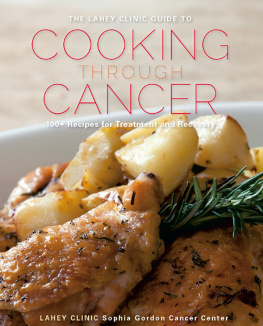
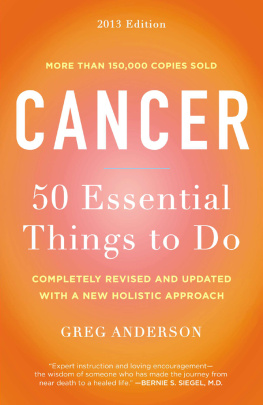
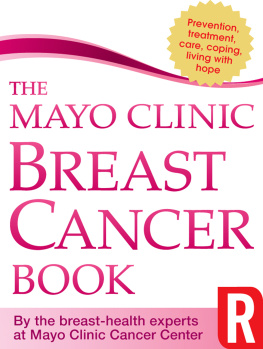
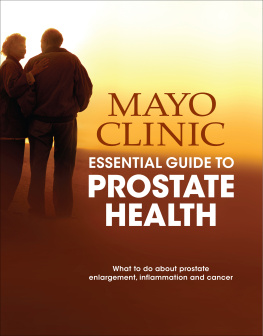

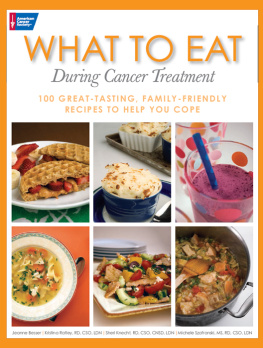
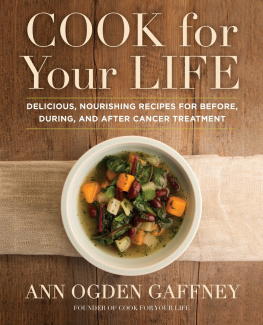
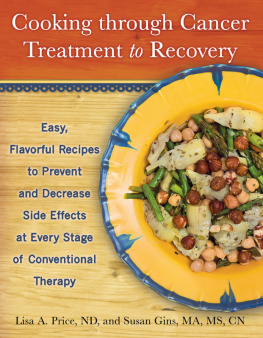
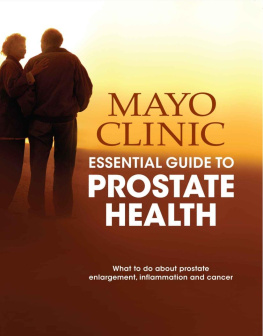
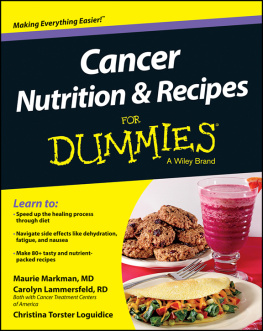
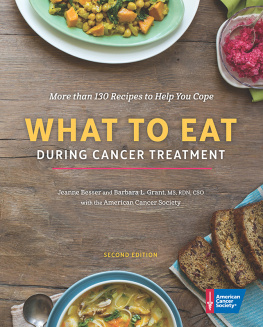
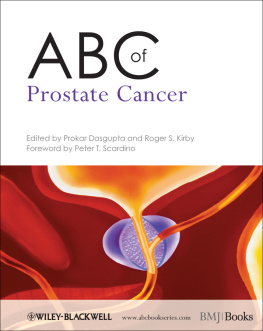


 This cookbook is dedicated to the patients and families of the Sophia Gordon Cancer Center at Lahey Clinicour inspiration. CONTENTS
This cookbook is dedicated to the patients and families of the Sophia Gordon Cancer Center at Lahey Clinicour inspiration. CONTENTS  Key to Recipe Categories SM Sore Mouth C Constipation WLP Weight-Loss Prevention D Diarrhea WGP Weight-Gain Prevention N Neutropenia N/V Nausea and Vomiting
Key to Recipe Categories SM Sore Mouth C Constipation WLP Weight-Loss Prevention D Diarrhea WGP Weight-Gain Prevention N Neutropenia N/V Nausea and Vomiting  WHAT YOU EAT IS IMPORTANT. Your choice of foods, and how you eat them, is a very personal thing: it reflects your tastes and desires, how you feel at different moments, and can even be an expression of your personality. Eating can be a social occasion, an excuse to meet someone, a willful experiment in new sensations, a celebration, or a search for comfort. The food you eat can be fun and different or a safe routine; it can be a political statement, a demonstration of faith, a moral decision, and a mirror for how you feel about yourself and your body. Eating can be an extravagant experience or a quick fill-up, and it can be different things at different times.
WHAT YOU EAT IS IMPORTANT. Your choice of foods, and how you eat them, is a very personal thing: it reflects your tastes and desires, how you feel at different moments, and can even be an expression of your personality. Eating can be a social occasion, an excuse to meet someone, a willful experiment in new sensations, a celebration, or a search for comfort. The food you eat can be fun and different or a safe routine; it can be a political statement, a demonstration of faith, a moral decision, and a mirror for how you feel about yourself and your body. Eating can be an extravagant experience or a quick fill-up, and it can be different things at different times.